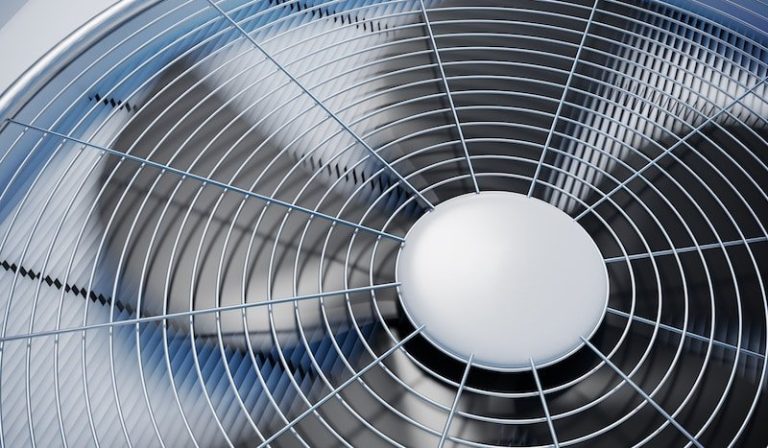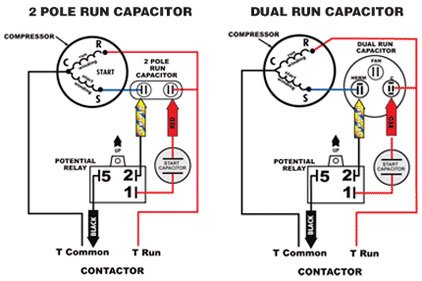How Much Water Should Come From An Air Conditioner? Expert Answers Revealed
The amount of water that should come from an air conditioner depends on various factors, such as the humidity level, temperature, and size of the unit. Generally, a properly functioning air conditioner should produce a small amount of water, usually in the form of condensation, which is drained away through a designated pipe or tray. If you notice excessive water dripping or pooling, it may indicate a problem that requires professional attention.
Did you know that maintaining the optimal performance of your air conditioner involves more than just adjusting the temperature? If you own or use an air conditioning unit, you may have encountered issues with excessive water leakage, inadequate moisture removal, or struggled to determine the appropriate amount of water that should come from your system. These problems can not only impact the functionality of your air conditioner but also contribute to increased energy consumption and discomfort in your living space.
In this blog article, we will delve into the crucial question: How much water should come from an air conditioner? Whether you’re a beginner or have a basic understanding of how air conditioners work, this guide will provide you with the knowledge and insights you need to optimize the performance of your system. Throughout the article, we will explore the factors that affect water production in air conditioners, the potential problems associated with excessive or inadequate water, and practical tips to ensure your system operates efficiently.
We’ll also discuss real-life examples and provide solutions to common challenges faced by air conditioner owners. By the end of this article, you’ll have a clear understanding of how to maintain the ideal water output from your air conditioner, enabling you to enjoy a comfortable and efficient cooling experience. So, let’s dive in and discover the secrets to keeping your air conditioner in top-notch condition.
Are you ready to unlock the secrets to optimal air conditioner performance? Let’s get started!
Factors Affecting Water Production in Air Conditioners
Before we dive into the question of how much water should come from an air conditioner, it’s important to understand the factors that influence water production in these systems. By understanding these factors, you’ll be better equipped to optimize the performance of your air conditioner.
Cooling Capacity
The cooling capacity of an air conditioner plays a significant role in determining the amount of water it produces. Air conditioners are designed to remove both heat and moisture from the air. When warm air enters the unit, it passes over the evaporator coils, which are filled with a refrigerant. As the warm air comes into contact with the cold coils, moisture in the air condenses, forming water droplets. The cooling capacity of the air conditioner determines how effectively it can remove moisture from the air.
Relative Humidity
The relative humidity of the surrounding environment also affects the amount of water produced by an air conditioner. Relative humidity is a measure of the amount of moisture in the air compared to the maximum amount it can hold at a specific temperature. When the relative humidity is high, there is already a significant amount of moisture in the air, which means the air conditioner may produce less water. On the other hand, in dry climates with low relative humidity, the air conditioner may produce more water as it works to remove moisture from the air.
Temperature Differential
The temperature difference between the air outside the air conditioner and the evaporator coils also impacts water production. The greater the temperature differential, the more water can condense on the coils. In hot and humid climates, where there is a significant temperature difference, air conditioners can produce large amounts of water. However, in cooler environments with smaller temperature differentials, the water production may be lower.
Potential Problems Associated with Excessive Water
While adequate water production is necessary for optimal air conditioner performance, excessive water can lead to a range of problems. It’s important to be aware of these potential issues to ensure the efficient and safe operation of your air conditioner.
Water Leakage
One of the most common problems associated with excessive water in air conditioners is water leakage. If the water produced by the system cannot effectively drain away, it can accumulate and eventually leak out of the unit. Water leakage can cause damage to the surrounding area, including walls, floors, and furniture. It can also lead to the growth of mold and mildew, which can have detrimental effects on indoor air quality and pose health risks.
Inadequate Moisture Removal
In some cases, air conditioners may not be able to remove enough moisture from the air, resulting in inadequate moisture removal. This can lead to high humidity levels inside your home or space, which can be uncomfortable and create the ideal conditions for mold and mildew growth. Additionally, excessive humidity can cause damage to wood furniture, electronics, and other sensitive materials.
Reduced Energy Efficiency
Excessive water production can also contribute to reduced energy efficiency of your air conditioner. When the system has to work harder to remove excess water, it requires more energy to operate. This can lead to higher energy consumption and increased utility bills. By ensuring the proper water output from your air conditioner, you can help maintain its energy efficiency and reduce your environmental impact.
Optimizing Water Output from Your Air Conditioner
Now that we understand the factors influencing water production and the potential problems associated with excessive water, let’s explore some practical tips to optimize the water output from your air conditioner.
Maintain Proper Airflow
Ensuring proper airflow is essential for maintaining the optimal performance of your air conditioner. Restricted airflow can lead to a drop in cooling capacity, which in turn affects water production. To maintain proper airflow, regularly clean or replace air filters, remove any obstructions around the outdoor unit, and ensure that vents and registers are not blocked.
Regular Maintenance
Regular maintenance is crucial for the efficient operation of your air conditioner. Schedule professional maintenance at least once a year to have your system inspected, cleaned, and tuned-up. During maintenance, the technician will check for any potential issues that could impact water production and address them promptly.
Control Relative Humidity
If you live in a humid climate, controlling the relative humidity inside your home can help optimize water output from your air conditioner. Consider using a dehumidifier to remove excess moisture from the air, especially in areas with high humidity. This can reduce the strain on your air conditioner and improve its overall performance.
Ensure Proper Drainage
Proper drainage is essential to prevent water leakage and ensure efficient water removal from your air conditioner. Check the condensate drain line regularly to ensure it is not clogged or obstructed. If you notice any signs of water leakage or suspect issues with drainage, it’s important to address them promptly to avoid further damage.
Consult a Professional
If you’re experiencing persistent issues with water production in your air conditioner or have concerns about its performance, it’s always best to consult a professional HVAC technician. They have the knowledge and expertise to diagnose and address any problems, ensuring your system operates optimally.
Real-Life Examples and Solutions
Let’s take a look at some real-life examples of water production issues in air conditioners and the corresponding solutions:
Example 1: Excessive Water Leakage
If you notice water leaking from your air conditioner, it could be due to a clogged condensate drain line. To address this issue, you can try using a wet/dry vacuum to remove any debris or buildup from the drain line. If the problem persists, it’s recommended to contact a professional to inspect and resolve the issue.
Example 2: Inadequate Moisture Removal
If you’re experiencing high humidity levels inside your home despite running your air conditioner, it may not be removing enough moisture from the air. Consider using a standalone dehumidifier to supplement the air conditioner’s moisture removal capacity. This can help maintain a comfortable indoor environment and prevent moisture-related issues.
Example 3: Reduced Energy Efficiency
If you’re concerned about the energy efficiency of your air conditioner, there are several steps you can take. Start by ensuring proper airflow and regularly replacing or cleaning air filters. Additionally, consider using a programmable thermostat to optimize temperature settings and reduce energy consumption. These small changes can make a significant difference in the overall efficiency of your air conditioning system.
Wrapping Up
Understanding how much water should come from an air conditioner is essential for maintaining its optimal performance and efficiency. By considering the factors that affect water production, addressing potential problems associated with excessive water, and implementing practical tips for optimization, you can ensure a comfortable and efficient cooling experience in your home or space.
Remember to prioritize regular maintenance and consult a professional for any persistent issues or concerns. With the right approach and care, your air conditioner will continue to provide reliable cooling while keeping water production in check.
How to UNCLOG your AC DRAIN Condensate line FAST – Water stains on Ceiling? or in the Pan
How much water should come from an air conditioner?
Is it normal for an air conditioner to produce water?
Should I be concerned if my air conditioner is not producing water?
Can the water from an air conditioner be used for watering plants?
How can I prevent water leakage from my air conditioner?
Final Words: Optimizing Water Output and Maintenance for Efficient Air Conditioner Performance
In conclusion, the amount of water produced by an air conditioner is influenced by factors such as cooling capacity, relative humidity, and temperature differential. Understanding these factors is crucial for optimizing the performance of your air conditioner.
Excessive water can lead to problems such as water leakage, inadequate moisture removal, and reduced energy efficiency. To optimize water output from your air conditioner, it is important to maintain proper airflow, schedule regular maintenance, control relative humidity, ensure proper drainage, and consult a professional if needed.
Real-life examples and solutions were provided to help readers better understand and address water production issues in air conditioners. These examples included dealing with excessive water leakage, inadequate moisture removal, and reduced energy efficiency. Overall, by following the tips and solutions provided, readers can ensure the efficient and safe operation of their air conditioners while maintaining a comfortable indoor environment.
Prioritizing regular maintenance and seeking professional help when needed will help keep water production in check and maintain the optimal performance and energy efficiency of the air conditioning system.






